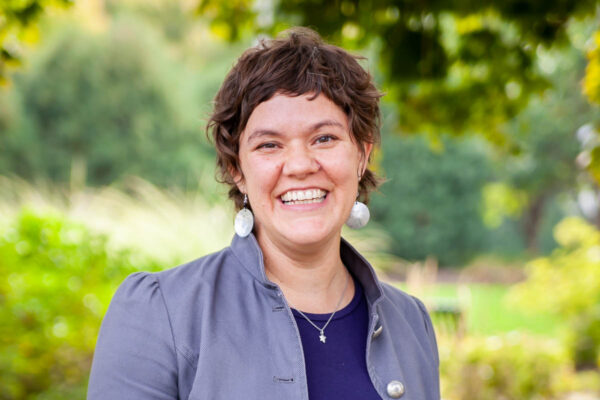Just a light bulb
Worship experiences have their own excitement. Other rituals in life, like taking out contact lenses at bedtime and brushing teeth in a particular way, are quite predictable. But in worship, anything can happen.
A mother may get the strings of her daughter’s baptismal bonnet so badly tangled that the pastor has to call for scissors.
An organ key can stick, sending a whistle that’ll wake up anyone sleeping through the prayers. The priest announces the joyous birth and “health of a gifty baby,” instead of, “the gift of a healthy baby.”
We have our own catalog of memorable liturgical experiences at St. Paul. Deep in the lore of years past was a Good Friday Service of Darkness. The church had darkened progressively as the passion story of Christ’s suffering and death unfolded. This is a Christian way of re-imagining the sky over Jerusalem going dark from noon to 3:00 on that awful day. As if to imitate the life of the
Lord being slowly snuffed out, the acolyte in our service gradually extinguishes a series of candles. With the church completely dark, except for one candle left burning, and worshipers breathing their quietest, the acolyte moves to take this symbol of Christ’s spirit out of the sanctuary. It would be gone until Easter.
In descending the chancel steps, the acolyte struggled to see beyond the tiny light of the candle. Even the smallest light can overwhelm a cavernous space. You know this from the half-watt night-light in your bathroom.
You can practically read the newspaper under its beam. Well, with his depth of field erased, and the light blinding his sense of direction, the acolyte stumbled into a worshiper seated in the front row.
No hair caught fire. No wax spilled. But the bump of kneecaps cut into the silence. None the worse for it all, the acolyte found the exit door. Jesus still rose on Easter morning.
Darkness gets our attention. According to John in the Bible, we love darkness more than light. I don’t know if this is really true, though a lot of unseemly things happen in the dark. Why the district attorney in Ferguson, Missouri, elected to announce, after the sun went down, the controversial “not guilty” verdict of the police officer who shot Michael Brown, I’ll never understand. All kinds of shenanigans ensued as arsonists torched buildings and ran off into the night, undetected.
The first thing God created was light. Light came before anything else. Presumably it brought out the colors of the rest of creation, giving special vibrancy to the fresh expanse of God’s handiwork.
The second act of God was to separate the light from the darkness, as if somehow we might confuse the two. There is a cartoon of God whistling in front of a wash machine, carefully separating the light socks from the dark ones in the hamper. Always separate light from dark, you know, or you’ll have a mess on your hands.
God didn’t want a mess.
So, God set about creating understanding. Do this, and you will live. Avoid that, especially that pear tree and beating up your brother, and you will prosper. In time, God’s favorite creatures – that would be us – discovered they were made to shine. Artists started putting haloes above heads to indicate brilliance, an “aha” feeling, or holiness. Once Thomas Edison came along, cartoonists switched to drawing a light bulb atop heads, especially on confused souls who suddenly had a bright idea.
We’ve been trying to make sense of our luminosity ever since God determined there is a lot to light up with our lives. Remembering where our shine comes from may be our biggest problem. We often confuse our bulb with the power behind it.
Here I think of Mother York, a favorite of mine since I learned of her years ago. She was a tiny woman with a charismatic smile and gigantic faith who, for 43 years as a jail chaplain in Chicago, shined light on thousands of convicts. “I’m just a light bulb,” she was fond of saying. “But there’s a power line. His name is God and I don’t try to take
His job. I just try to be the bulb. That’s enough.”
When the light streams in on your Easter this year, just be the bulb. That’s enough. The world will shine brighter with the power of Christ in you.
–Peter W. Marty, senior pastor




